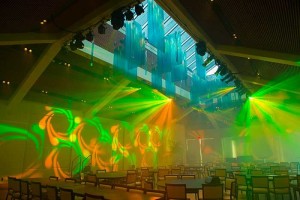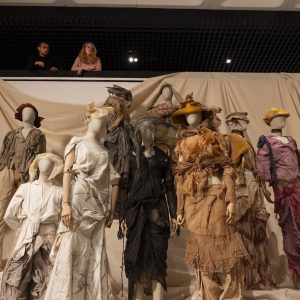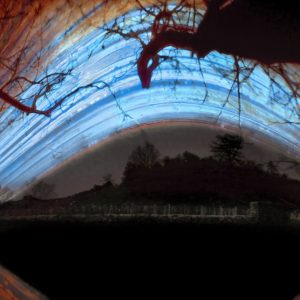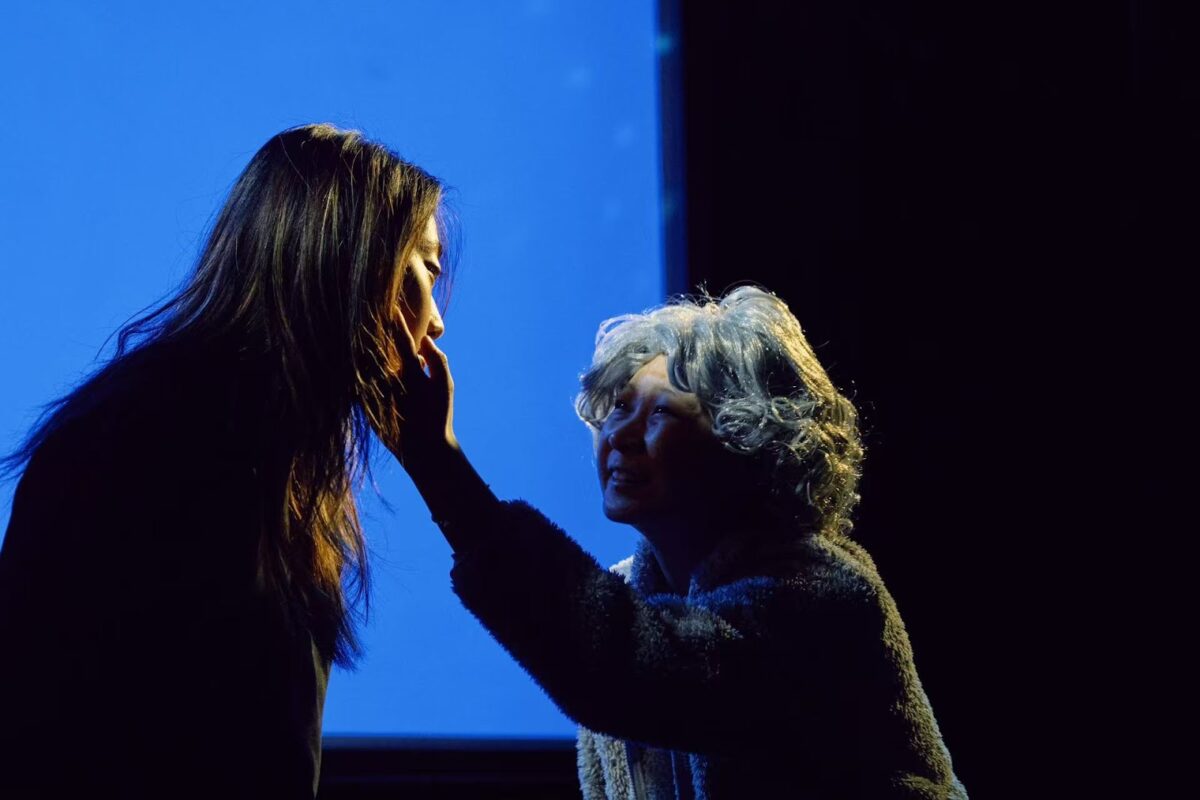
The experimental theatre piece <i,i> was performed at the Etcetera Theatre on April 11th. Set in the year 2033, the play delves into avant-garde themes like posthumanism, cross-species emotions, and interpersonal alienation, all explored through the intricate dynamics between a grandmother, her grandson Gary, an automaton named Dolly, and Gary’s mother, Lily.
The story revolves around Lily’s death—her tragic fate completely fractures the relationship between Gary and his grandmother. After suffering sexual assault, Lily endures both physical and psychological trauma, compounded by verbal abuse from her grandmother. Unable to accept reality, the grandmother redirects her pain into blaming her daughter, while Lily, in despair, turns to “transhumanism” , seeking to escape suffering by abandoning her physical body. Caught between them, Gary chooses to flee, living the rest of his life in the shadows, while the grandmother drowns in regret over losing her daughter, ultimately filling the void in her heart through a distorted relationship with Dolly, an AI doll.
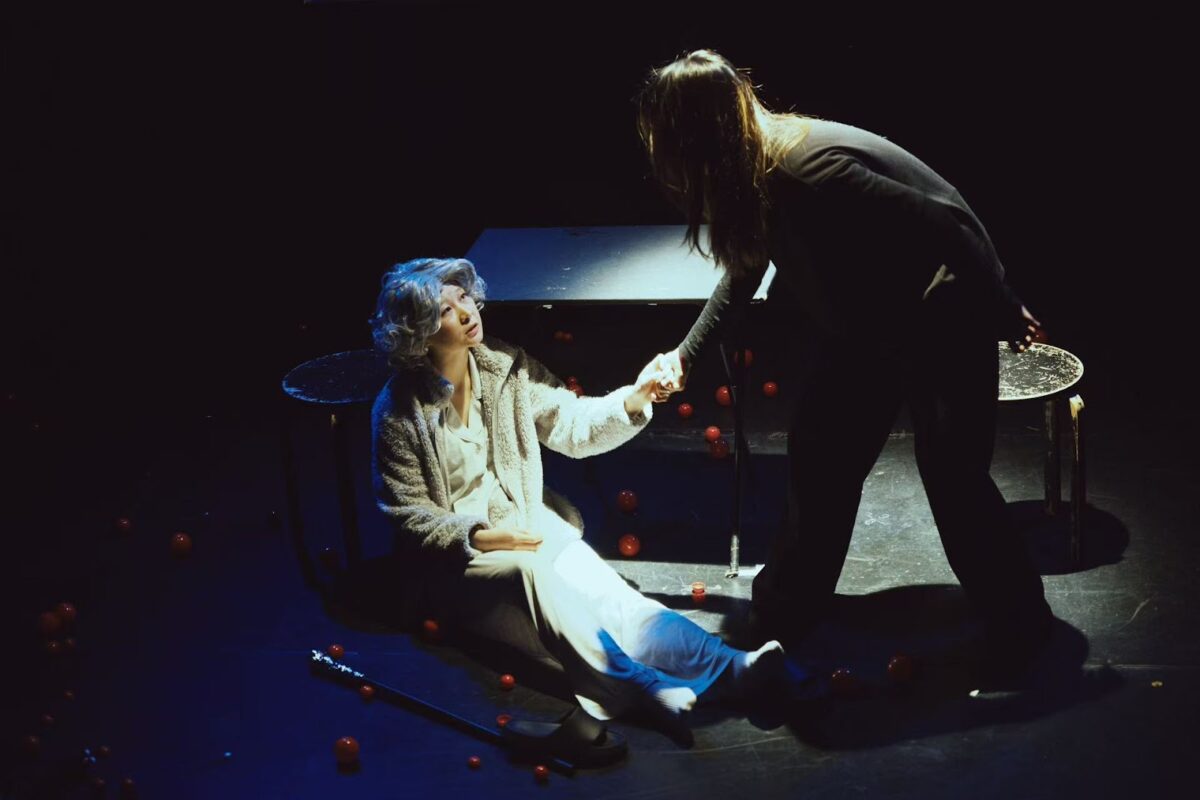
The Core Themes is: Intergenerational Transmission of Trauma—How the grandmother’s abuse of Lily warps Gary’s understanding of intimacy. Technological Alienation —If humans reconstruct their bodies through technology, do emotional bonds still exist? Posthuman Family —Dolly, as an AI doll, serves both as the grandmother’s “surrogate daughter” and Gary’s means of escaping reality.
The performances of the actors in this production are notably outstanding. Mary Emma He and Natali Luo, portraying Gary and Dolly respectively, immediately captivate the audience in the opening erotic scene, evoking a visceral response. Their understanding of character psychology and physical coordination is impeccable, especially in the scene where Dolly gradually succumbs to fear while Gary’s unsettlingly possessive control reaches its apex, achieving a nearly flawless execution. However, due to limited rehearsal time, minor timing discrepancies in their interactions persist.
Meanwhile, Qiuyue Zhang, playing the grandmother, delivers a compelling performance. Despite minimal makeup and hairstyling, she maintains a consistent performance, vividly embodying an elderly woman suffering from dementia. However, her emotional progression appears somewhat flat, particularly in the third act’s argument with Gary, where the intensity fails to reach its peak.
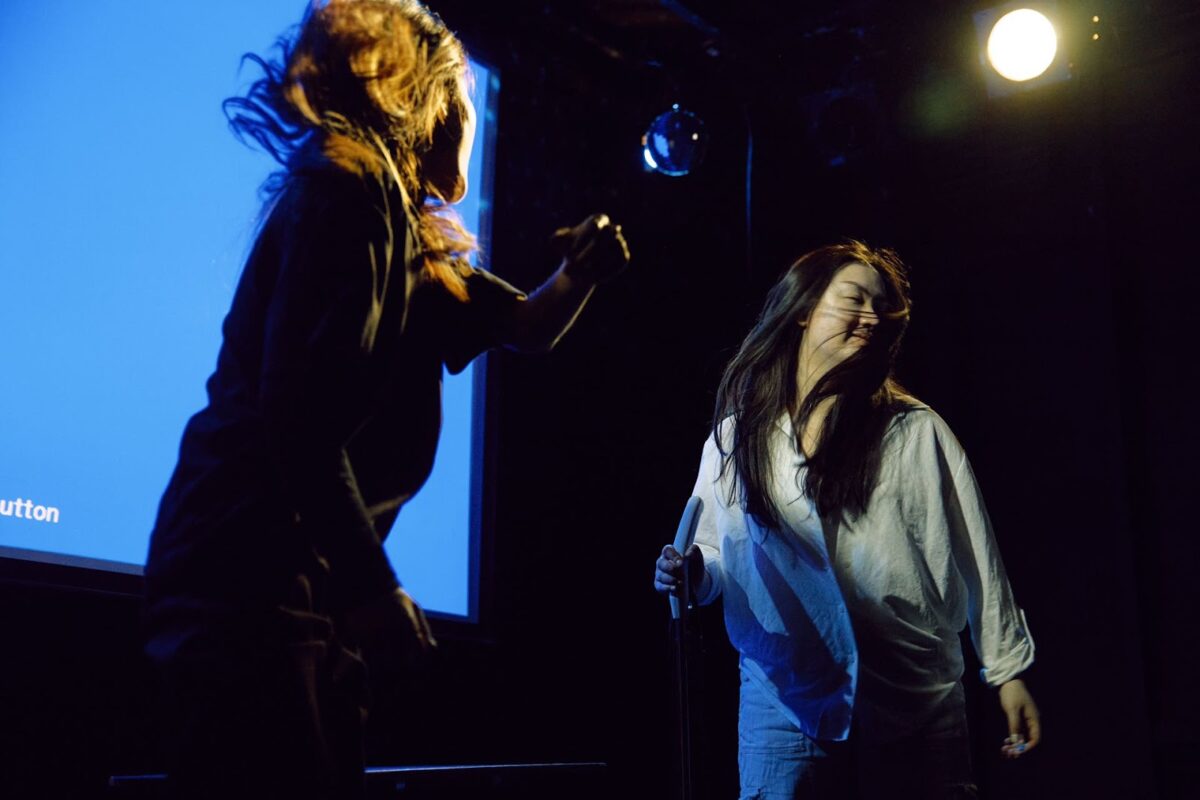
As both playwright and director, He Jiang (SGY) exhibits a highly imaginative vision for the narrative. As a writer, she infuses the play with reflections on futuristic society, exploring post-humanist themes beyond cybernetics, and questioning human-machine and human-human relationships in a strikingly avant-garde manner. However, constrained by the 30-minute runtime, the pacing feels overly hurried, lacking moments of respite. As a director, her use of the apple as a prop possesses a performative, almost behavioral-art quality, symbolizing both the forbidden fruit of desire and a metaphor for life’s conditions. The costume design further reinforces this symbolism: Gary, ensnared by his past, wears all black; the grandmother, still bound by memories, wears gray sleepwear; and Dolly, the only one who escapes, wears white, symbolizing hope. However, as a first-time director, He Jiang’s staging of character movements appears somewhat restrained, with few notable choreographic moments.
Special mention should be made of the sound design, a collaborative effort between Tongyu Wu and director He Jiang. The audio design exudes a hallucinatory, futuristic quality, characterized by metallic, eerie, and almost interactive elements. However, likely due to the use of pre-existing music, some emotional beats do not fully synchronize with the actors’ movements.
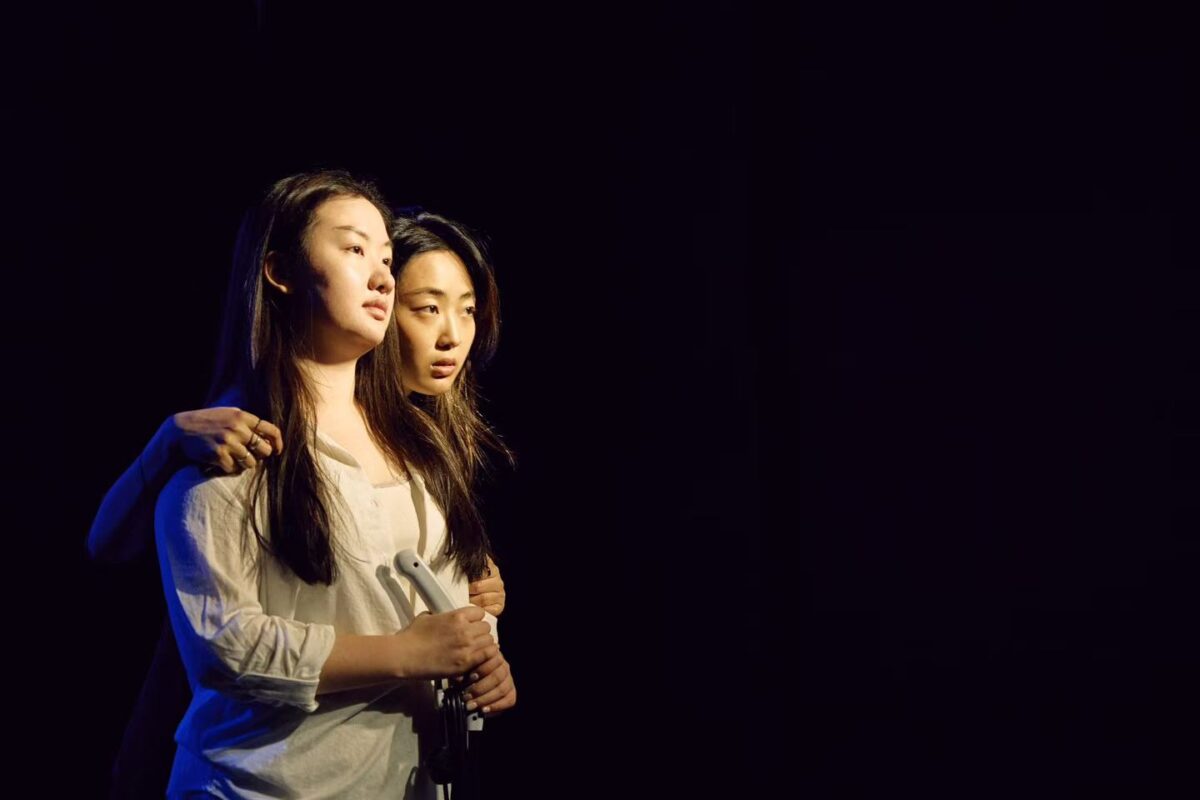
Even as a small-scale theater production, lighting designer Xuan Ge (Luka) diligently creates a hazy, damp atmosphere. In many of the director’s behavioral-art segments, the lighting is effective (literally), although it lacks deeper synergy with the set design. One visually striking moment occurs at the end, where a makeshift altar of a robotic vacuum cleaner, constructed from chairs and tables, is bathed in flickering red light against a blue backdrop, creating an uncanny and mystical ambiance.
Producers Sijia Li and Mary Emma He exhibit exceptional organizational skills and artistic vision. Their contributions, ranging from team coordination to promotional efforts, are evident throughout. Their meticulous selection of cast and crew laid a solid foundation for the production. However, as a new and relatively unknown work <i,i> faces challenges in marketability. Notably, as a feminist-leaning play, it features an entirely female production team, a rarity in the field.
The sole male crew member, cinematographer Ziqi Xu (Tree), also demonstrates remarkable artistic sensitivity, capturing the actors’ nuanced expressions and harmonizing seamlessly with the set design. His framing is precise and evocative.
Props master Minghao Sun successfully finds appropriate props despite the script’s abstract nature, although the overall execution feels somewhat rudimentary, likely due to the production’s limited budget as a fledgling team.



